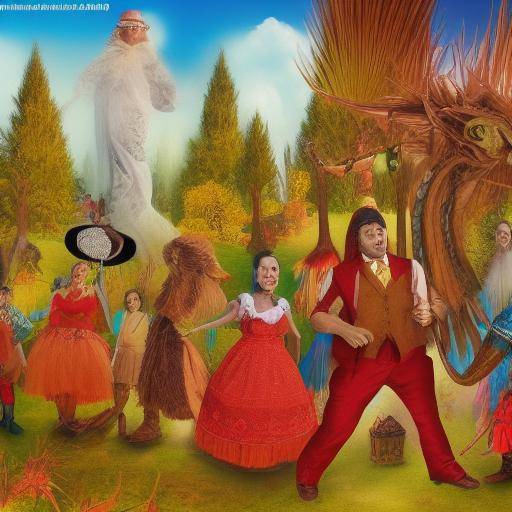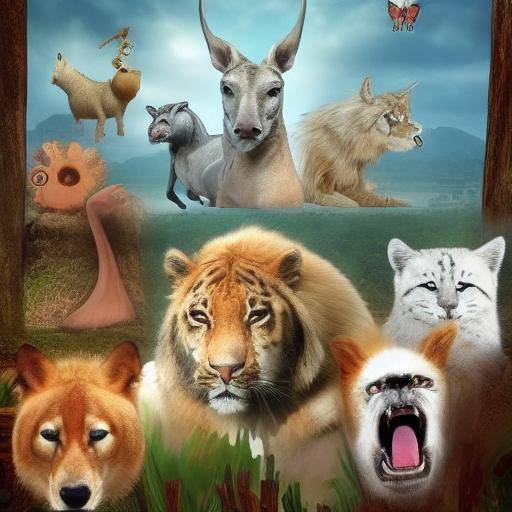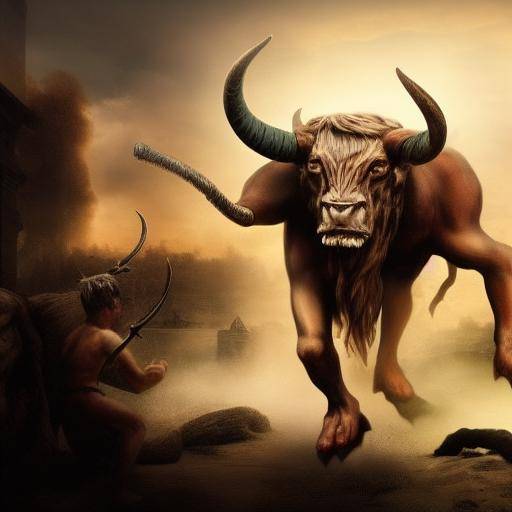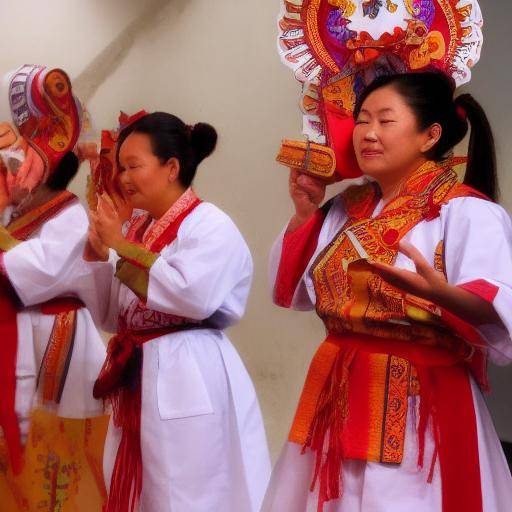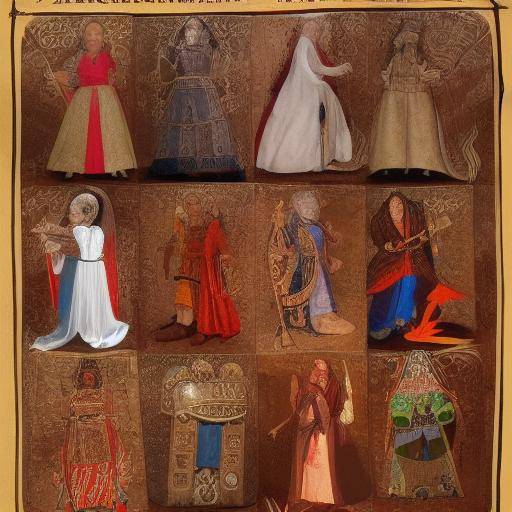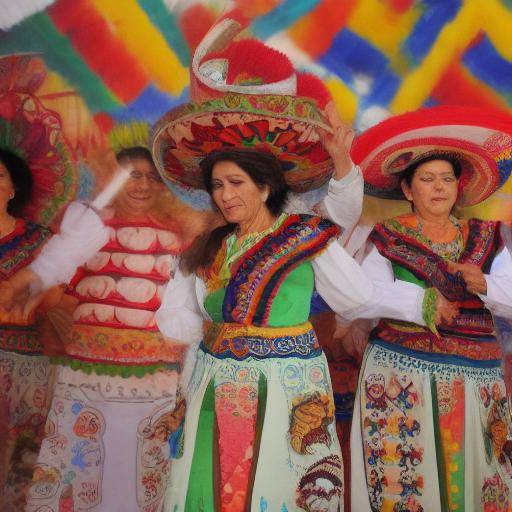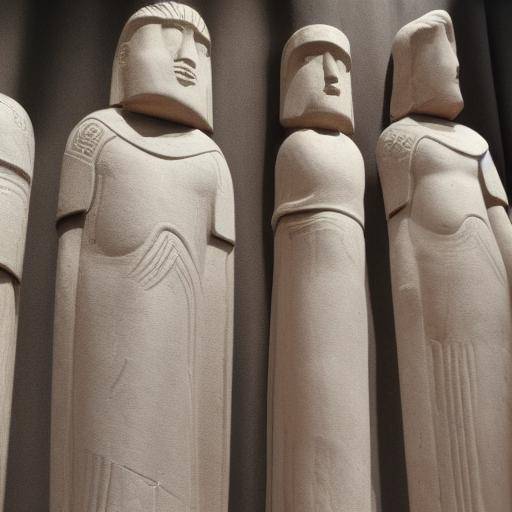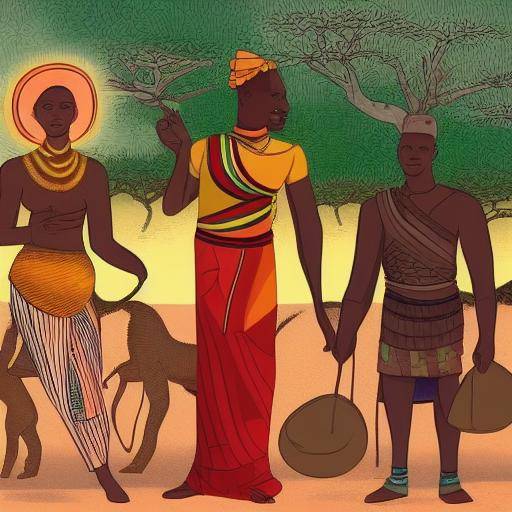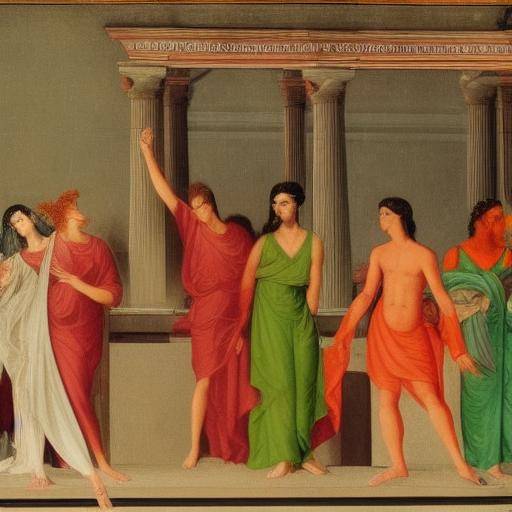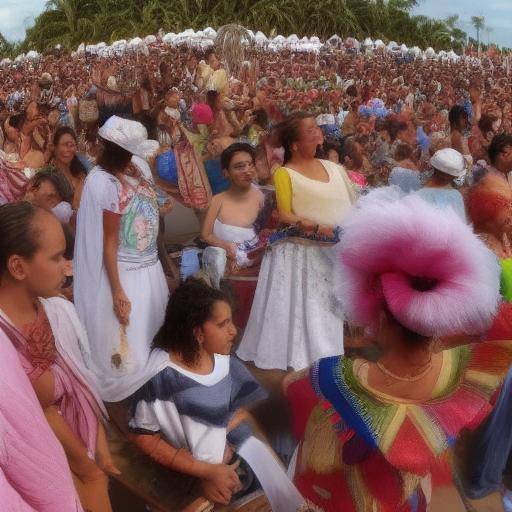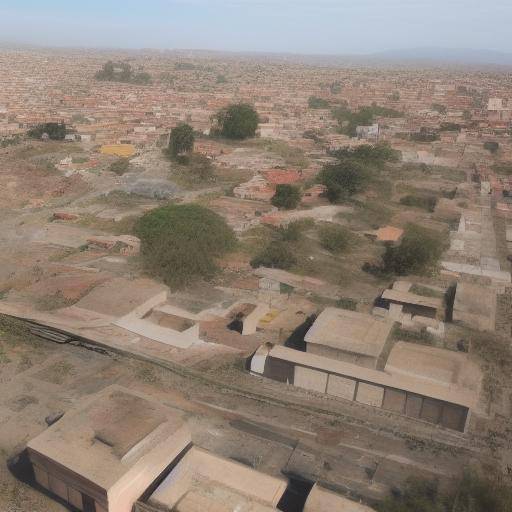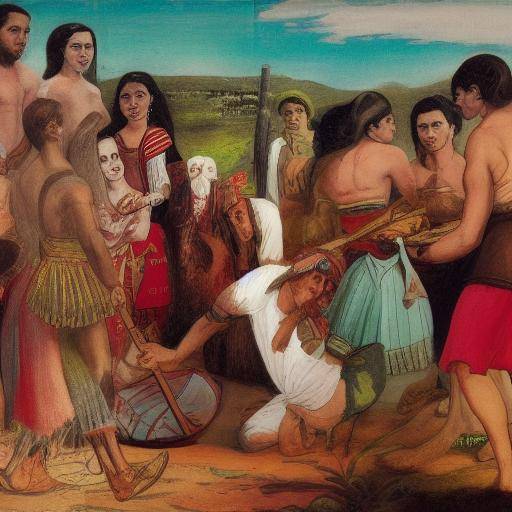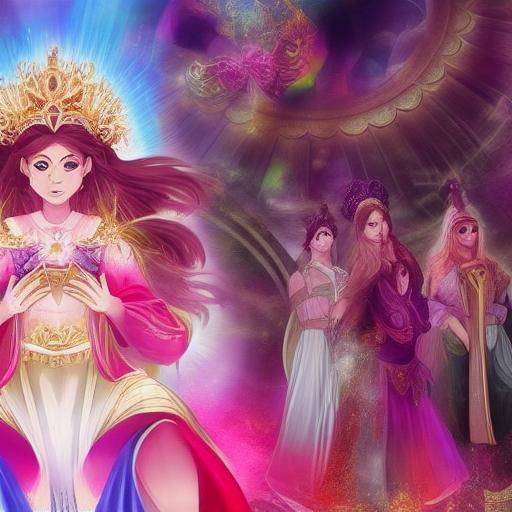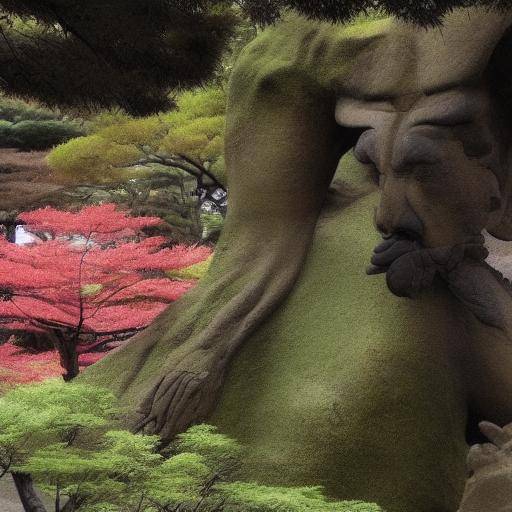
Nature plays a fundamental role in Japanese mythology, rooted in the rich history and deep beliefs of this culture. In this article, we will explore the intricate relationship between Japanese nature, mythology and beliefs that have shaped the vision of the world of this people. From the myths of natural gods to the influence on traditions, we will discover the unique relevance of nature in Japanese mythology.
Introduction
Japanese mythology is rooted in nature, manifesting itself through various gods, spirits and natural elements that have shaped the worldview and beliefs of the Japanese people over the centuries.
The connection between nature and mythology is a recurring theme in countless cultures around the world, but in the Japanese context, this relationship acquires particular nuances that reflect deep respect and reverence for the natural environment.
In this article we will explore this link, from the origins of Japanese mythology and its integration with natural elements to the beliefs rooted in contemporary society, offering a fascinating look at the intersection between nature, mythology and Japanese beliefs.
History and Background
Origins of Japanese Mythology
Japanese mythology dates back to ancient times, where the stories of gods and natural spirits were transmitted orally by generations. The influence of nature in these narratives is evident in the worship of elements such as sun, moon, sea, mountains and trees, all acquiring a divine status in Japanese mythology.
Kojiki, one of the oldest texts in Japanese literature, collects myths and legends that offer a deep insight into the relationship between nature and mythology. From the creation of the world to the genealogy of the gods, the omnipresent presence of nature is undeniable in these ancestral narratives.
Evolution of the Beliefs and His Link with Nature
Over time, Japanese mythology has interwoven with various currents of thought, marking its influence on Japan's society, culture and arts. Reverence by nature is reflected in ceremonies and festivals linked to agriculture, fishing and other activities linked to the natural environment.
The introduction of Buddhism and religious syncretism in Japan did not hinder the presence of nature in mythology, but enriched beliefs by incorporating new divinities and perspectives on the natural world. This process of evolution continues, influencing contemporary society and defining the Japanese attitude towards nature.
Emblematic and Legend cases
Mount Fuji, a cultural and natural icon of Japan, is inherently linked to Japanese mythology. Considered sacred and venerated as a deity, Mount Fuji exemplifies the deep connection between nature and spirituality in the Japanese worldview. In addition, numerous local legends and stories highlight the interaction between gods and natural spirits, building a vast repertoire of stories that nourish the Japanese folklore.
Analysis in Deep
Cultural and Spiritual Importance of Nature
Nature in Japanese mythology is not only venerated from a spiritual point of view, but also reflected in cultural aspects such as gardening, architecture and traditional arts. The Japanese gardens, carefully designed to reflect natural harmony, are a living testimony of this intimate connection with nature.
Contemporary beliefs and practices
In the modern context, the influence of nature on Japanese mythology persists through festivals, ceremonies and daily practices. Festivals like the Hanami, which celebrates the beauty of the cherry blossoms, or the O-Bon, which honors the ancestors through rituals related to nature, are palpable examples of the continuation of these traditions rooted in Japanese mythology.
Exhaustive examination
Natural Elements in Japanese Cosmology
The Japanese cosmology is imbued with natural symbolism, where each element, whether wind, water, fire or earth, has a profound meaning and a connection with specific divinities. These elements not only form Japanese mythology, but also influence the understanding of the world and the universe within this culture.
Holistic Approach to Nature
The Japanese cosmovision presents a holistic appreciation of nature, where each aspect of the natural environment is valued, from the grandeur of mountainous landscapes to the delicacy of cherry flowers. This integral vision is reflected in the ethic of respect for nature, known as "Satoyama" and "Satochi-satoyama", which promotes harmony between humans and the surrounding nature.
Adoption in the Arts and Popular Culture
The natural elements present in Japanese mythology have left an indelible mark on Japanese arts and popular culture. From traditional painting to contemporary literature, natural motives and mythological concepts continue to inspire and enrich artistic and cultural expression in Japan.
Comparative analysis
Japanese Nature vs. Other Mythologies
The influence of nature on Japanese mythology shares similarities and differences with other mythologies of different cultures. While nature in Nordic mythology is marked by the cold and vastness of landscapes, Japanese mythology is unfolding in a more temperate and mountainous environment, generating unique conceptions about the links between nature and spirituality.
Related beliefs and practices
The beliefs and practices related to nature in Japanese mythology are intertwined with belief systems of other cultures, showing parallels in worship of natural entities and the recognition of the influence of nature in everyday life. This comparative analysis allows us to understand the universality of the connection between nature and spirituality in the different cultures of the world.
Practical Tips and Accessible Recommendations
The "Shinrin-Yoku" Practice
The "Shinrin-Yoku" or "forest bath" is a Japanese practice that promotes connection with nature as a means of improving health and well-being. The adoption of this approach, involving immersion in natural environments, has demonstrated significant benefits for physical and mental health, offering a practical way of integrating nature into everyday life.
Participation in Festivals and Ceremony
Participating in traditional Japanese festivals and ceremonies related to nature provides a unique opportunity to experience and understand the deep relationship between Japanese mythology and nature. These cultural experiences not only enrich personal understanding, but also foster renewed respect for nature and its manifestations in everyday life.
Ideas and Industry Reviews
Environmentalist perspectives
Environmentalists in Japan have advocated preservation and respect for nature, highlighting the importance of mythological beliefs in promoting sustainable practices and caring for the natural environment. This perspective offers a significant link between Japanese mythology and environmental awareness.
Visions of Artists and Creators
Japanese artists and creators have found inspiration in mythology and nature, using these influences as a means of expressing personal visions and raising awareness about the importance of preserving the natural environment. His works reflect the vitality and beauty of nature, exalting its importance in contemporary society.
Case Studies and Practical Applications
Modern Architecture and Sustainable Design
The influence of nature in Japanese mythology extends to modern architecture and sustainable design, where approaches that integrate natural elements have been adopted to promote harmony with the environment. Examples of organic architecture and eco-sustainable design practices reflect the continuation of this connection rooted in Japanese mythology today.
Sustainable Tourism and Conservation
The natural and sacred sites associated with Japanese mythology have been the subject of sustainable tourism and conservation efforts to preserve their integrity and cultural value. These cases show how nature-related beliefs and myths have influenced the promotion of responsible tourism and environmental management practices, highlighting their relevance in contemporary society.
Future Trends and Predictions
Integration of Nature in Urban Life
The integration of nature into urban environments is expected to continue to be a key trend in Japan, with innovative approaches to incorporating natural elements into urban spaces, from parks to sustainable buildings, promoting a balance between urban and natural.
Sustainability Inspired by Mythology
Sustainability inspired by Japanese mythology can lead innovative initiatives that merge nature reverence with contemporary practices, offering creative solutions for environmental and social challenges. These applications could be extended to areas such as agriculture, resource management and environmental education.
Conclusions and FAQs
Conclusion
The intersection between nature, mythology and beliefs in Japan is a testimony of reverence for the natural environment and its profound influence on all aspects of Japanese life. From art to architecture, from festivals to sustainability, the presence of nature in Japanese mythology persists as an inspiring and transformative force.
Japanese mythology is intrinsically intertwined with nature, creating a legacy of understanding and respect for the natural environment that continues to resonate in modern society. This legacy invites us to reflect on our own relationship with nature and the profound wisdom we can gain in honoring and protecting it.
Frequently asked questions (FAQs)
1. What is the importance of the gods of nature in Japanese mythology?
In Japanese mythology, the gods of nature represent the connection between the supernatural and the earthly, fostering respect and reverence for the natural elements and their influence on everyday life.
2. How are the natural elements reflected in popular culture and Japanese arts?
Natural elements are present in artistic forms such as painting, music, poetry and theatre, serving as sources of inspiration and expression that celebrate the beauty and meaning of nature in Japanese society.
3. What is the role of nature in traditional Japanese medicine?
Nature plays a vital role in traditional Japanese medicine through approaches such as "Shinrin-Yoku", which promotes healing and well-being through immersion in natural environments.
4. How does Japanese mythology and nature influence sustainable tourism in Japan?
Japanese mythology and its connection to nature drive sustainable tourism initiatives that promote the conservation of sacred natural sites, preserving their cultural value and fostering responsible travel practices.
5. What is the impact of Japanese mythology on modern architecture and sustainable design?
Japanese mythology influences architecture and sustainable design by fostering the integration of natural elements and principles of harmony with the environment, guiding practices that respect and reflect reverence by nature.
6. What are the practical applications of reverence by nature in the daily lives of the Japanese?
Reverence by nature in Japanese mythology translates into everyday practices such as gardening, cooking, crafts and cultural label, influencing the relationship of the Japanese with the natural environment and their manifestations in everyday life.
In conclusion, the relationship between nature, mythology and beliefs in Japan is a rich and complex narrative that reveals deep reverence for the natural environment in Japanese culture. From the past to the present, this connection has forged a lasting legacy that continues to inspire and enrich life and society in Japan. The understanding of this relationship invites us to reflect on our own connection to the nature and wisdom that we can extract in honoring and protecting it.



